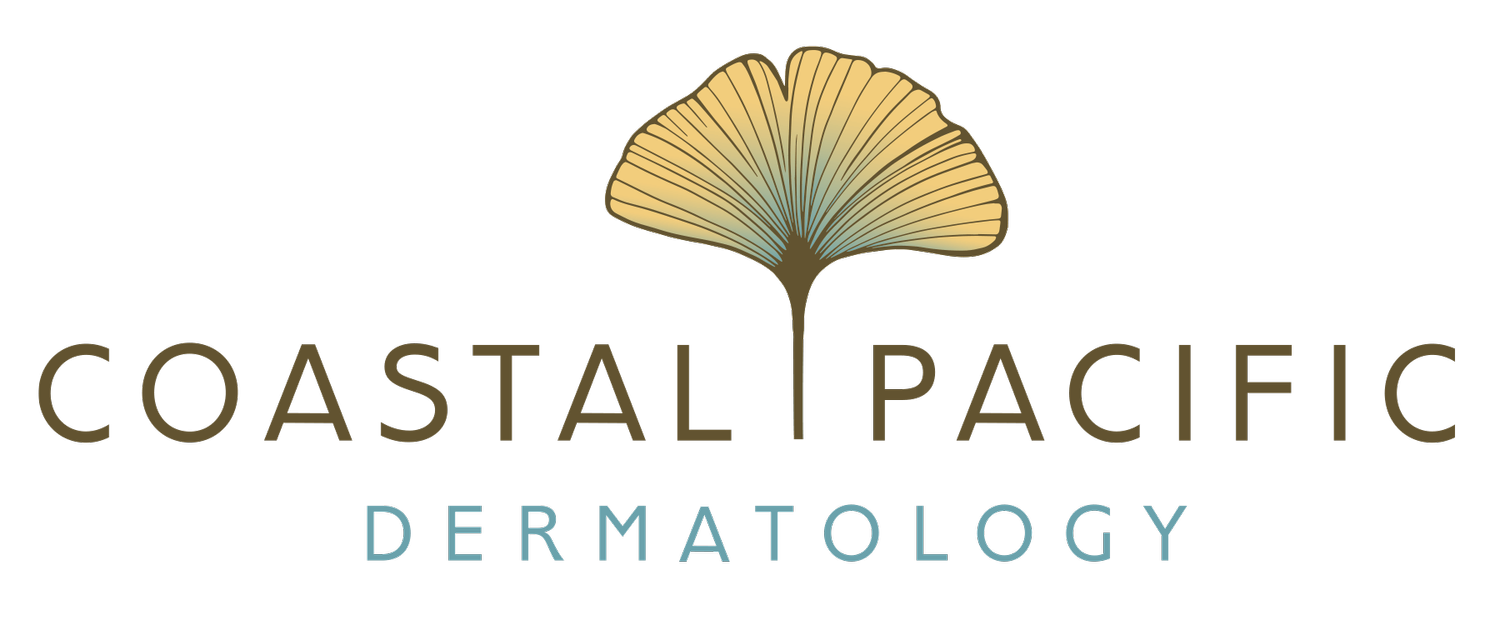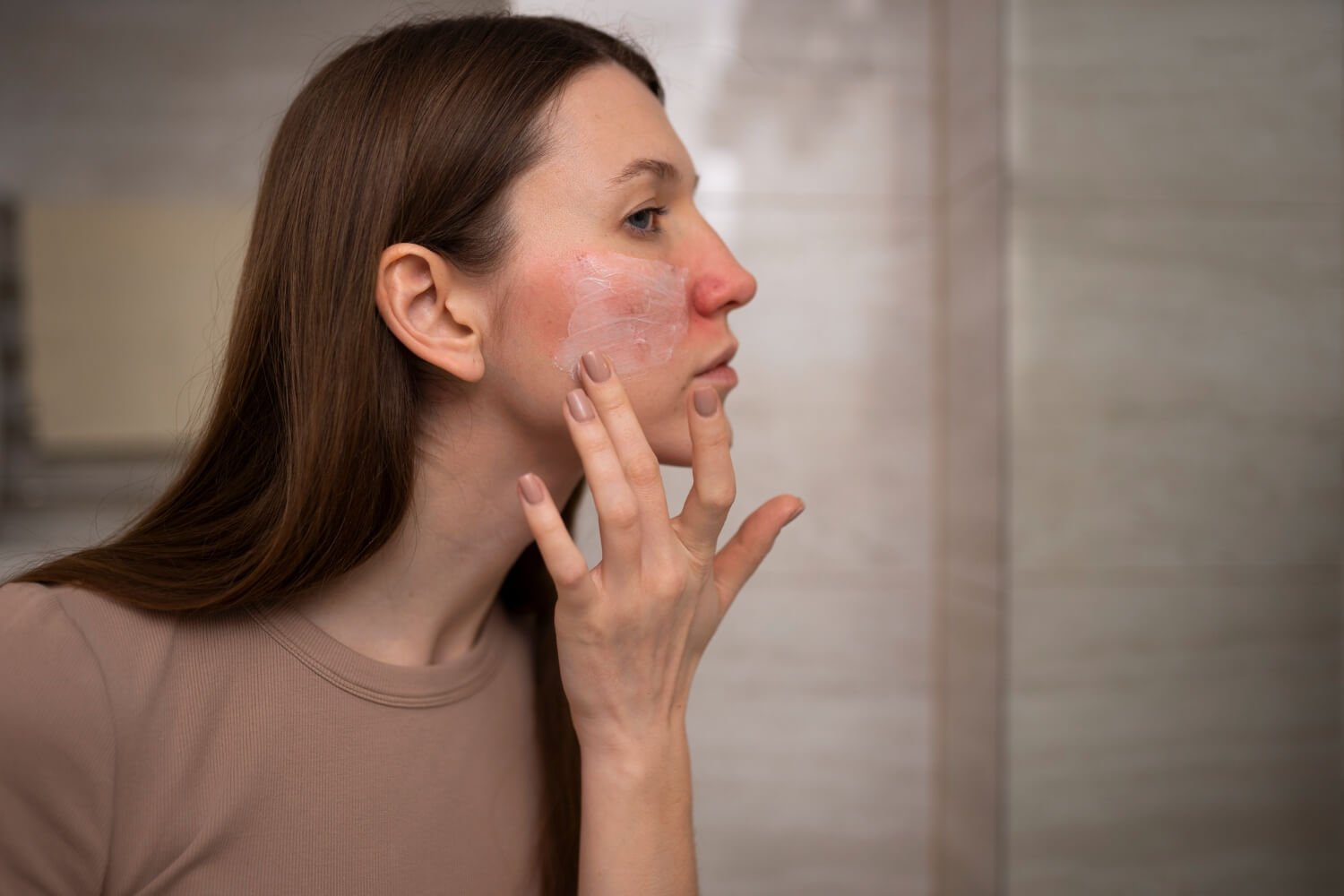Rosacea
Rosacea is a chronic skin condition that primarily affects the face, causing redness, visible blood vessels, and sometimes small, red, pus-filled bumps. Rosacea can also cause sensitive skin, burning and irritation. Rosacea is very common but very treatable- using creams, washes, and advanced therapy if needed, rosacea symptoms can be well managed.
What is rosacea?
Rosacea is a chronic skin condition that primarily affects the face, causing redness, visible blood vessels, and sometimes small, red, pus-filled bumps. In some individuals, it can also cause thickening of the skin around the chin, nose, cheeks are forehead. For some patients, rosacea can also make the skin feel sensitive, chapped and dry and can be very uncomfortable. Rosacea can also cause flushing and blushing, which can be socially distressing.
Types of rosacea
There are four main types of rosacea and they can sometimes overlap:
Erythematotelangiectatic rosacea: This subtype is characterized by persistent redness of the central face, along with visible blood vessels (telangiectasia). People with this type may also experience flushing and a tendency to blush easily. Unlike other subtypes, it doesn't involve papules (red, pus-filled bumps) or pustules (pus-filled lesions).
Papulopustular rosacea: This type is characterized by persistent redness with papules (small red bumps) and pustules (pus-filled lesions). It can be easily confused with acne.
Phymatous rosacea: This subtype is less common and often affects the nose. It leads to thickening of the skin, irregular texture, and sometimes enlargement of the nose. This can give the nose a bulbous appearance, a condition often referred to as "rhinophyma".
Ocular rosacea: This subtype primarily affects the eyes. It can cause redness, dryness, itching, burning, and in some cases, even vision problems. Some people with ocular rosacea may also have symptoms of one of the other subtypes on their skin.
What causes rosacea?
Most cases of rosacea are caused by a number of different factors. Genetics can influence rosacea and it is often seen in women, though men can be affected as well. Other factors that can contribute to rosacea include:
Harsh skin care products
Spicy foods, alcohol, hot beverages, sunlight, stress
Use of topical corticosteroids for long periods on the face
Increased presence of Demodex mites on the skin
Alterations in the skin microbiome
“Dr. Krishna is wonderful! Always very informative, takes the time to listen, and extremely pleasant and knowledgeable. She continues to help me greatly with my acne various skincare questions and concerns.”
How do dermatologists treat rosacea?
Rosacea can significantly affect self confidence and self image. Thankfully, there are many excellent treatments for rosacea that are safe and effective. Treatment options include:
Mild, fragrance free skin care products, including sunscreen
Lifestyle measures including a whole food, plant based diet and reduction of triggers
Topical and oral antibiotics
Topical ivermectin
Laser therapy using intense pulsed light or a vascular laser
If you have rosacea, please reach out to us at Coastal Pacific Dermatology, where Dr. Krishna can create a personalized treatment plan for your specific type of rosacea. Please fill out our contact form if you have questions or feel free to schedule an appointment using our Appointment Scheduler.

